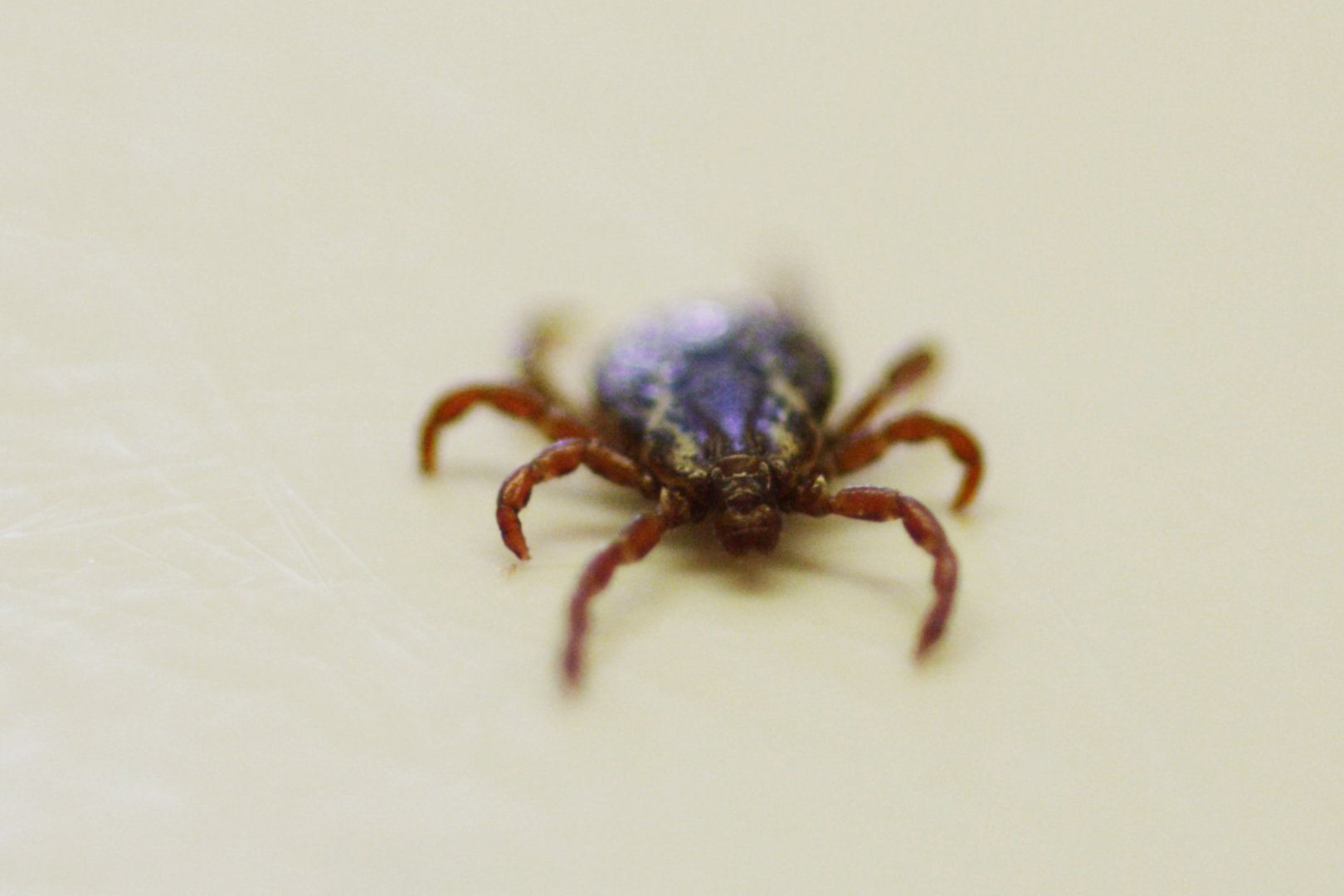Tick, tick, tick. These tiny insects can bite and burrow under our skin. The sound of the “ticking” clock serves as a good reminder to always make sure to seek medical care within 24 hours following a tick bite, which has the potential to lead to serious illness.
“If a tick is removed quickly from the skin, a person’s risk of contracting a tick-borne illness is substantially lowered,” said Dr. David Banach of the Division of Infectious Diseases at UConn Health. “Even if you think you removed the insect on your own, seek professional medical care. Parts of the bug could remain in your skin raising your risk of tick-borne infection. In some cases, preventive antibiotics may be appropriate.”
Now half way through the high season for ticks, Banach and other doctors of the Division of Infection Diseases at UConn Health are still on elevated alert for patients contracting tick-linked diseases. High season runs from May through October and several patients have been hospitalized this season at UConn John Dempsey for tick-borne diseases.
A tick can carry a variety of diseases, and as a result of a bite, its victims are at risk of contracting one or more infections. The most common tick infection in Connecticut is Lyme disease. It’s most common symptoms are a bullseye rash often accompanied by fever, body aches, fatigue or flu-like symptoms. Most patients can be treated with antibiotics to clear up the infection. But for some patients Lyme disease symptoms can linger causing chronic joint aches, even after successful treatment.
In recent years, it’s been discovered that ticks can also carry varied malaria-like parasitic and bacterial diseases that can infect a person’s circulating blood cells with illness ranging from mild to severe.
These two more common infections from tick bites in Connecticut are babesia and anaplasma. Babesia infects the red blood cells and symptoms can appear within a week to a few weeks, most commonly fever, heavy sweats, and body aches. Anaplasma, the most common type of the bacterial diseases known as ehrlichia found in the U.S., infects white blood cells and within one to a few weeks presents similarly with symptoms of fever, chills, body aches and headache.
According to Banach, these parasite and bacterial infections can really get people sick and lead to hospitalization, particularly among those with compromised immune systems, the elderly or pregnant women.
The most recent tick-borne illness to emerge is the Powassan virus. While very rare, it is of major concern to doctors. There is little known about this newly identified tick-borne disease beyond that it affects a small number of patients in the U.S. each year and can be deadly. This infection can lead to severe symptoms of high fever, headache, vomiting, confusion, memory loss or even coma. Most cases have occurred in the Northeast and Great Lakes region with Connecticut recently reporting its first case after the virus infected an infant and led to hospitalization.
“When you are outdoors a tick can bite at any time,” says Banach. “Sometimes a person can just be at the wrong place at the wrong time when a disease-infected tick bites — so prevention measures are really critical for everyone to follow and take seriously.”
For prevention UConn Health’s infectious disease team recommends:
- Keep your arms and legs covered, especially if in a wooded area;
- Use an insect repellant containing DEET;
- Perform a daily skin check for ticks and signs of tick bites;
- If you do find a tick bite, seek medical care within 24 hours.
“If you start experiencing flu-like symptoms this summer, make sure you get checked-out medically,” stresses Banach. “Your symptoms could be linked to a tick bite.”
To learn more about UConn Health’s patient care services and doctors visit the websites for primary care and infectious diseases.



